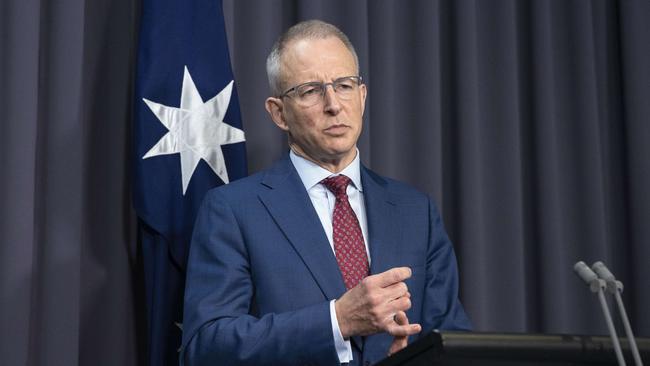Competition policy sealed media bargaining code deal with tech giants
Australia’s decision to treat the news media bargaining code as a competition policy issue was one of the key drivers in getting the legislation across the line.

Communications Minister Paul Fletcher says Australia’s decision to treat the news media bargaining code as a competition policy issue, rather than a copyright matter, was one of the key drivers in getting the legislation across the line, with overseas countries now seeking to do the same.
Mr Fletcher said the “competition approach was a well-established policy tool” in Australia when dealing with industries where bargaining power imbalances existed.
Several ministers from countries including Canada, France, Germany, Finland and the UK, have contacted Mr Fletcher to discuss Australia’s strategy in legislating a mandatory news media bargaining code, in addition to the conversations that Prime Minister Scott Morrison and Treasurer Josh Frydenberg had with heads of state including Indian Prime Minister Narendra Modi and Canada’s leader Justin Trudeau.
The code became law in Australia on Thursday after last-minute amendments were approved by parliament.
“There’s certainly significant overseas interest in the particular approach we have used,” Mr Fletcher said.
“But different countries tackle these things in different ways.
“One of the points I made in all of those calls, and indeed in all of the calls that we had with the digital platforms including Google, Facebook and Microsoft, was that we’ve handled this as a competition law matter not a copyright matter, which is how the Europeans – France, for example – have covered the issue,” Mr Fletcher told The Australian.
“The use of a code to deal with industries having bargaining power imbalances is a well-established policy tool in Australian competition policy; for example there’s a code to deal with dealings between supermarkets and their suppliers.
“The code embodied the so-called negotiate-arbitrate model, where we encourage commercial negotiation, and there’s arbitration if that fails.
“So in the conversations I’ve had (with overseas counterparts), I’ve been speaking about how this is a pretty orthodox competition policy approach, certainly in Australian law and policy, and how similar provisions apply in other industries such as telecommunications. I think those have been useful perspectives for both the digital platforms but also ministers in other countries, because our approach to those competition issues is somewhat different to theirs.”
Mr Fletcher said pursuing the matter under competition policy allowed the government to achieve the two central aims of the mandatory news media bargaining code.
“The policy rationale is twofold: one, this is a competition policy issue and if you’ve got businesses that have substantial market power and are not engaging with other businesses, then we want to correct that. Two, it turns out that the industry where the competition arises, the media sector, is critical to our democracy – it’s critical to Australian society that we have a diverse and vigorous news media sector.”
Mr Fletcher said it was critical that the Morrison government didn’t overplay its hand during negotiations with the tech titans.
“One of the strengths of what we’ve done was to intervene just enough to get businesses to the table to negotiate commercial deals. If they didn’t do that under their own steam, there’s the final offer arbitration in place,” he said.
“The ACCC’s advice to us was that the reason there have not been commercial deals in the past between the news media businesses on the one hand, and Google and Facebook on the other, was the imbalance of bargaining power.
“In other words, there’s been nothing to really bring the platforms to the table, even though in an ordinary commercial market these matters would have been dealt with and there would have been deals done.”
The code was the leverage needed to finally level the playing field, Mr Fletcher said.
Most major media organisations, including News Corp (publisher of The Australian), Nine and Seven West Media, have signed up to commercial arrangements with Google.
Facebook has signed a letter of intent with Seven West Media, but has not yet reached terms with News Corp, Nine and the public broadcasters ABC and SBS.





To join the conversation, please log in. Don't have an account? Register
Join the conversation, you are commenting as Logout